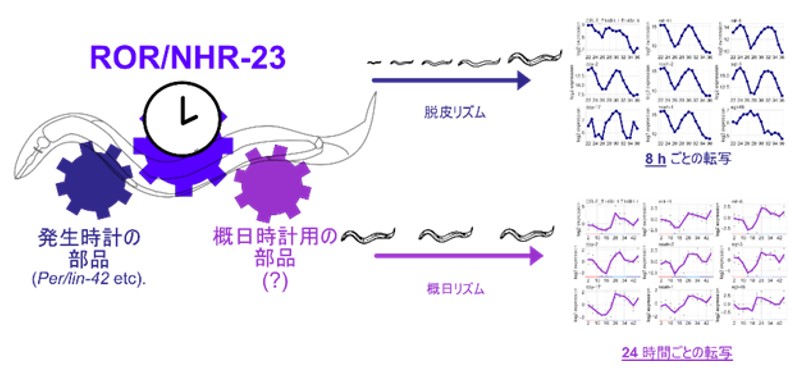DATE2024.02.29 #Press Releases
Discovery of a common gene regulating two biological clocks
Disclaimer: machine translated by DeepL which may contain errors.
The Tokyo Metropolitan Institute of Medical Science(TMIMS)
Graduate School of Science, The University of Tokyo
Summary of Presentation
Shingo Hiroki, a researcher of the Circadian Clock Project at the Tokyo Metropolitan Institute of Medical Science, and Hikari Yoshitane, a project leader of the Circadian Clock Project at the Tokyo Metropolitan Institute of Medical Science and an Associate Professor (concurrent) at The University of Tokyo Graduate School of Science, have discovered the common component (necessary gene) of two biological timers (biological clocks): a circadian clock that measures 24 hours and a developmental clock that measures 8 hours. The circadian clock generates physiological rhythms such as sleep and wakefulness that repeat every day in a 24-hour cycle. On the other hand, there are various periodic rhythms such as heartbeat and seasonal response, and the insect molting cycle was known as one of these phenomena. In this research, genes necessary for both this approximately 8-hour molting rhythm and the 24-hour sleep rhythm were discovered. The research results are expected to lead to an understanding of the mechanism by which organisms count various cycles, and to make it possible in the future to manipulate the body clock at will.
The results of this research were published online in the U.S. scientific journal "Communications Biology" on 29 February 2024 (Japan Standard Time).

Figure: Overview of the study
For more information, please visit the website of the Tokyo Metropolitan Institute of Medical Science (in Japanese).
Journal
-
Journal name Communications BiologyTitle of paper


